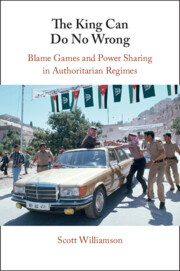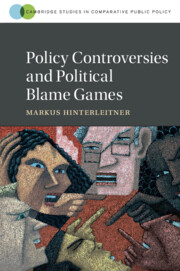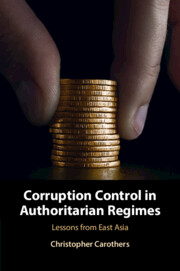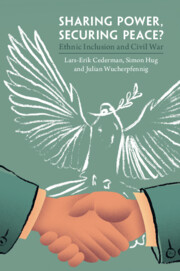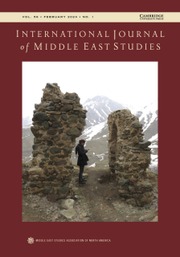The King Can Do No Wrong
Why are some autocrats more effective than others at retaining popular support even when their governments perform poorly? To develop insights into popular politics and governance across authoritarian regimes, this book stresses the importance of understanding autocratic blame games. Scott Williamson argues that how autocrats share power affects their ability to shift blame, so that they are less vulnerable to the public's grievances when they delegate decision-making powers to other political elites. He shows that this benefit of power-sharing influences when autocrats limit their control over decision-making, how much they repress, and whether their regimes provide accountability. He also argues that ruling monarchs are particularly well positioned among autocrats to protect their reputations by sharing power, which contributes to their surprising durability in the modern world. Drawing on extensive fieldwork in Jordan and cross-national analysis of autocracies, the book illustrates the important role of blame in the politics of authoritarian regimes.
- Questions why modern ruling monarchies have so often been stable, despite existing in a democratic age
- Draws on data from multiple countries as well as featuring a detailed case study of Jordan
- Combines qualitative and quantitative research methods, leveraging the strengths of both approaches
Reviews & endorsements
‘Scott Williamson has written an excellent book, detailing how power sharing may allow autocrats to avoid blame and retain support. The book presents a fascinating and important argument and backs it up by using a wealth of evidence from Arab monarchies and beyond.' Carl Henrik Knutsen, Department of Political Science, University of Oslo
‘The King Can Do No Wrong presents a new and compelling theory on how autocratic monarchs share power with their subordinates to credibly shift blame when policies go awry. Williamson presents compelling evidence from Jordan and provides an important explanation for the surprising durability of royal families. This book makes important contributions to our understanding of monarchies, power-sharing, and public opinion in autocracies.' Anne Meng, Associate Professor, Department of Politics, University of Virginia
‘In The King Can Do No Wrong, Scott Williamson clearly articulates how authoritarian rulers can use institutions to shift blame and maintain power. Emphasizing the role of soft power, it provides an important contribution to the study of institutions and authoritarianism.’ Ellen Lust, Governance and Local Development Institute and Department of Political Science, University of Gothenburg
Product details
November 2024Paperback
9781009484060
365 pages
231 × 151 × 21 mm
0.54kg
Available
Table of Contents
- 1. Introduction
- 2. A theory of power-sharing and attributions under authoritarian rule
- 3. Cross-national evidence on power-sharing and attributions in autocracies
- 4. The Jordanian monarchy's strategic blame games
- 5. How Jordanians attribute responsibility
- 6. Power-sharing and attributions across Jordan's modern history
- 7. How Jordan's blame games influence governance
- 8. The royal advantage in power-sharing and blame shifting
- 9. Power-sharing, blame, and the collapse of royal regimes
- 10. Conclusion
- Bibliography.

